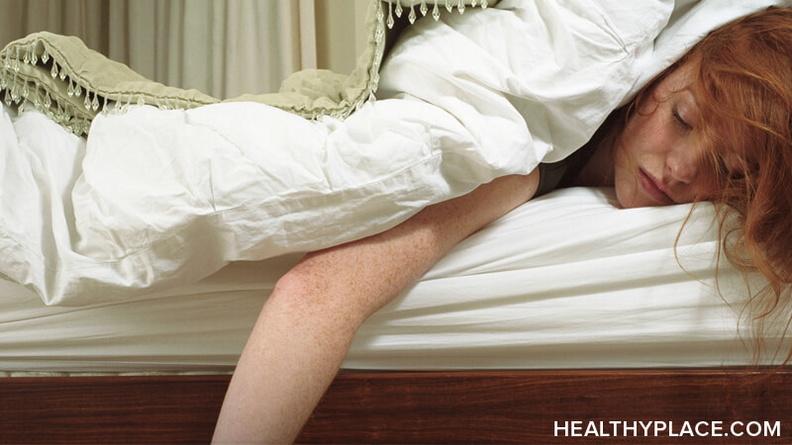Mental Health and Sleep Hygiene: Get Your Beauty Rest

Your mental health and sleep are closely linked. When you don’t get enough sleep, you’re more likely to be irritable or depressed. These qualities don’t make for pretty personalities. However, a little attention to sleep hygiene (habits to increase your quality of and time spent sleeping) can make a large difference in your happiness and overall health. Studies show that lack of sleep can raise the likelihood of developing depression, trigger a bipolar episode, and contribute to anxiety, according to a Harvard Mental Health letter that synthesizes multiple studies.1 How, then, can we improve our sleep in order to experience more of life? Turns out there’s an entire industry around sleep hygiene we can turn to for guidance because improving your mental health through sleep is entirely possible.
Prioritize Sleep and Mental Health with a Sleep Hygiene Makeover
Set a Bedtime
The first thing to do when prioritizing your mental health and sleep hygiene is to set a bedtime goal. When setting goals or a schedule for the week, include a specific bedtime as the first step in your sleep hygiene makeover. Create an agreement with yourself that wherever you are at that chosen hour each night, it’s time for bed. That focus will help plan your evening so that you’re wrapping up social exchanges, arriving home, or putting kids to bed before your rest time.
This beauty sleep guideline can be even more effective with a little accountability; try setting the guideline together with a partner or friend, putting a reminder in both your calendars, and checking in the next day to discuss results of your sleep on mental health. Soon, your new bedtime will become a habit.
Use Sleep Hygiene Technology
Many apps focus on improving your sleep. You can do everything from monitoring your sleep (free apps like Sleep Better can help as can a FitBit or other fitness tracker) to reminding yourself when it’s bedtime (such as the built-in features on the iPhone). Pillow is another free app that turns an iPhone into a sleep tracking device as well as keeps you accountable for your chosen bedtime.
Prepare for Sleep
When you want improved sleep and mental health, prepare for it hours before bedtime. Sleep hygiene includes the environment you’re sleeping in (your bedroom and general living space before bed), consistency, food intake, and exercise. For the hour before bed, try not to look at any screens. I know that one is hard, but relaxing your eye muscles helps calm the rest of your body in preparation for bedtime; try setting your phone to airplane mode at one hour before bedtime to help lower the temptation to check it. Also, avoid exercising within a few hours of bedtime other than some light stretches. Eating close to your bedtime can also keep you from that deep beauty sleep, so try to end dinner two hours before bed or keep the food nice and light if you can’t avoid close timing.
Even changing just one of these items can make a difference in your quality of sleep, and therefore your health and happiness.
Sources
1. Harvard Mental Health Letter, Sleep and Mental Health. July 2009. Accessed April 29, 2018.
APA Reference
Meredith, M.
(2018, May 13). Mental Health and Sleep Hygiene: Get Your Beauty Rest, HealthyPlace. Retrieved
on 2026, March 5 from https://www.healthyplace.com/blogs/living-a-blissful-life-physical-health-positive-attitude/2018/5/mental-health-and-sleep
Author: Morgan Meredith
Sleeping as special psycho-physiologic process indicates crucial step to satisfying mental health condition. So, your recommendations to sleep hygiene is great contribute to improve and strength mental health. In addition sleep hygiene prevent to intake sleep pilule, which ones have got many bad repercussions for our mental and somatic wellbeing. In order to get sleep is very important to avoid the consume of psychostimulants beverages (coffee, cola etc) or others psychoactive substances before bedtime. However, real life is more complex psycho-social constellation and the setting of bedtime isn't possible everytime. Therefore, the need to use hypnotic medication becomes indispensable. But this medication should be under close supervision of clinical psychiatrist. Otherwise, the consequences of non-professional intake of this medication might be very dangerous.
Thanks for the insights. I think that, since sleep medications have so many unpredictable side effects (such as people leaving their homes and driving, when they've never sleepwalked before), lifestyle approaches can be the first line of defense, and can probably even help with the efficacy of these medications if people do choose medication.
While real life is complex, it's definitely possible to put a rigid sleep schedule in place. It may take some time and effort to rearrange activities or get friends and family used to the new sleep schedule, but it's possible. It's certainly possible to avoid caffeine and screens before bed for almost all of us (the screens part might be difficult for certain jobs).
Getting enough sleep is one of those things that seems like such a no-brainer, but for many it's a struggle. Changing your habits around sleep, bed time and waking, can be incredibly positively impactful on your overall health (physical and mental!) and well-being.
Definitely! I certainly notice when I fall out of my routine (like if I go to a weekend party) - my health certainly suffers when I do that.
I'm curious what habits around waking you'd recommend? Mine was all focused on the "before sleep" rather than "after sleep".